How to clean camera lenses: Pro tips & cleaning solutions
Want to know how to clean camera lenses? Learn what the best way is, if you should clean with alcohol, how to clean an iPhone camera lens, and more.
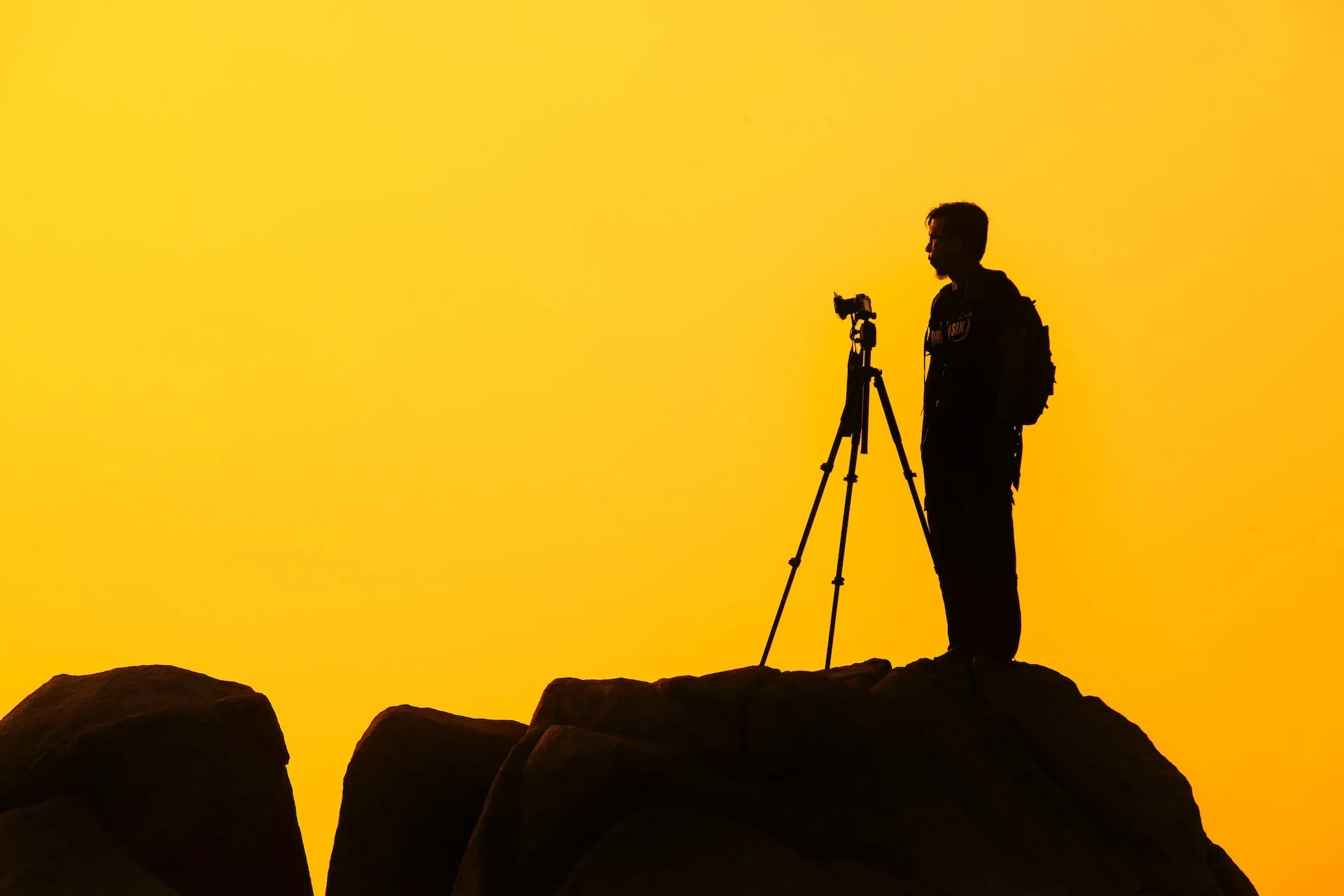
If you own a camera, chances are you’ve experienced a dirty lens ruining your footage. It sucks. That’s why Epidemic Sound ambassador ZY Cheng has found all the right solutions – check them out below.
Why should you clean camera lenses?
Dirt, dust, and fingerprints are a natural part of camera use. However, as time goes by, these little things pile up and your lens will suffer. The image quality will decrease, you’ll see smudges and imperfections whenever you shoot footage, and if you leave it long enough, your lens could be permanently damaged.
It’s just not worth it. A quick, simple clean can save you time, money, and sub-par footage. If you woke up every morning to a massive bay window with perfect views of the ocean, you’d clean that window within an inch of its life, right? The same goes for your camera lens. It’s the portal to new worlds and beautiful imagery, but only if you protect it.
How often should you clean camera lenses?
If you use your camera regularly, we’d recommend giving it a clean between two and four times per year. Every content creator and camera is different from the next, but the best way to determine if your camera lens needs cleaning is by using common sense. Has the quality of your footage declined? Are there notable blemishes in your footage? Can you see the dirt when you look at your camera lens from the front? The more you know about your camera, the easier the decision to clean.
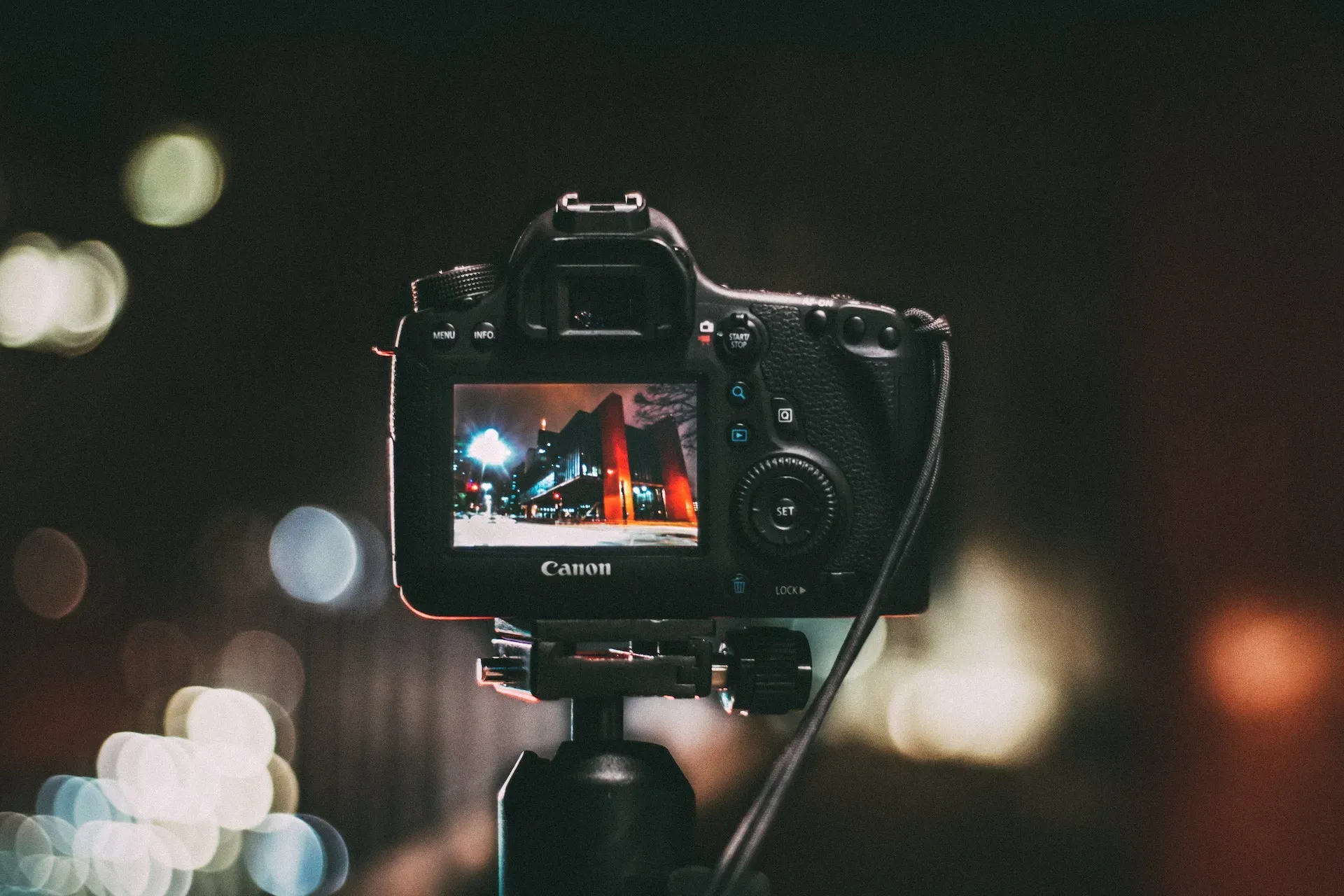
Only clean your camera lens if it needs cleaning. One grain of dust won’t make a difference in your shoot, but if you don’t clean your camera lens for ten months, that dust will have built up. Your camera lens is super sensitive, and doesn’t need cleaning unless necessary.
Can you wash your camera lens without lens cleaner?
If you’re at home, you might be tempted to clean your camera lens with some good ol’ soap and water. We’d advise against this. Household soaps and detergents often contain ingredients that actively damage your camera’s delicate camera lens.
Can water damage camera lenses?
On its own, water isn’t technically harmful to your camera lens. A little splash or two won’t be the end of the world, and if you have a clean wipe available, you shouldn’t have any trouble. However, if you use too much water, it could creep further into your lens and even into the main body of the camera. Not ideal.
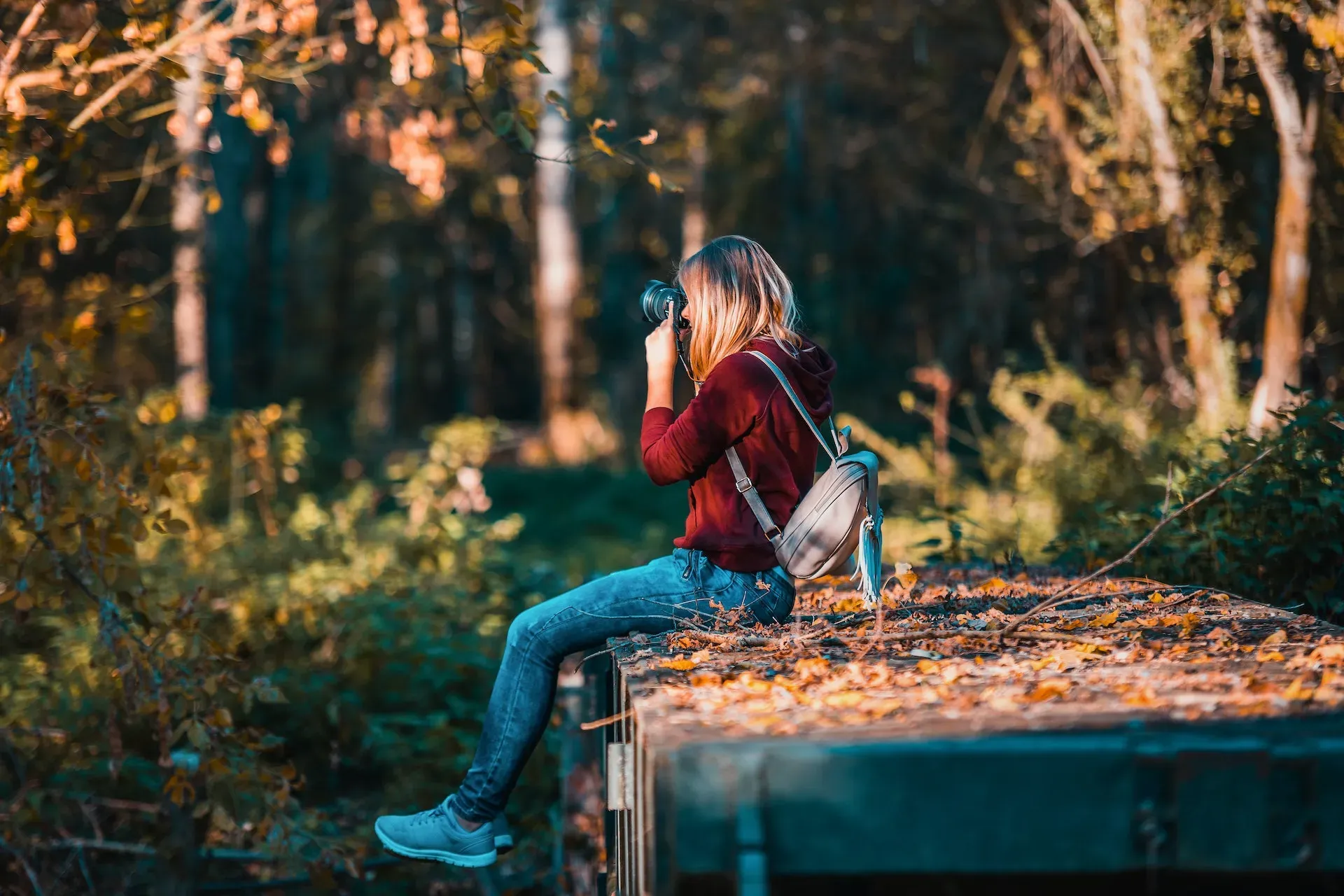
Is it OK to clean camera lenses with alcohol?
Some people swear by cleaning their camera lenses with pure alcohol. Generally, they’ll use a mixture of water and isopropyl alcohol – also called ‘rubbing alcohol’ – to do the job.
While this can help, it pays to check your camera lens’ manufacturer and model. For example, Canon tells customers to avoid using ethanol for cleaning their coated lenses, as it’ll damage the coating.
What gear do professionals use to clean their camera lenses?
Professional content creators take extra care of their camera lenses. After all, their gear is their livelihood. Let’s go through the tools pros use for cleaning camera lenses.
Dust blower
The almighty dust blower is a tool you need when cleaning camera lenses. Giottos offer a range of top-quality models, offering a generous amount of air per pump. A well-made blower won’t tire you out and will deliver consistent, strong jets of air. It’s the first thing we’d recommend reaching for when cleaning camera lenses, before you start any wiping.
Ideally, you want to blow off any particles on the lens’ surface, so that you don’t smear or grind anything against the glass when you wipe.
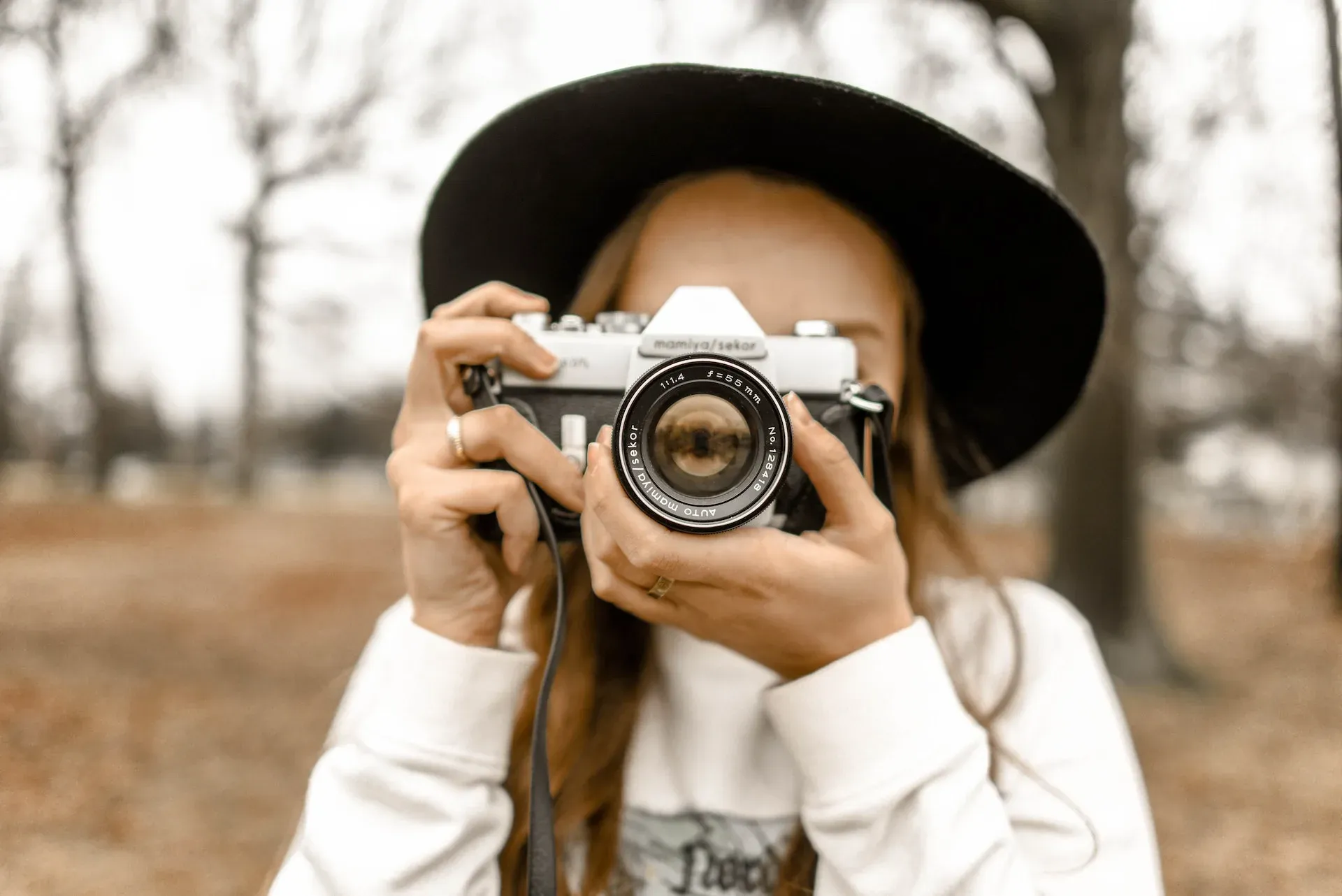
Compressed air
Sometimes, a dust blower won’t do the trick. You need something stronger. Enter: compressed air, of the canned variety. These puppies are also known as ‘air dusters’ or ‘dust-offs’, and throw out a bunch more air and power than dust blowers. We’d suggest Ambersil’s compressed air, but the market’s full of great alternatives.
But let’s say you’re in the middle of a shoot. Your gear becomes covered in powder, dust, sand – get some compressed air on it and you’ll be good to go. Just be careful not to use these at an angle, or upside-down. Otherwise, you’ll risk blasting your gear with ice-cold propellants.
Disposable wipes
These look like ordinary boxes of tissue paper, but they’re far from it. Disposable wipes – and in this case, let’s look at Kimtech’s lab-grade Kimwipes – are perfect for fragile surfaces like camera lenses. But why use Kimwipes when you already have a reusable microfiber cloth to hand?
Well, with reusable cloths, you run the risk of picking up debris from previous use and bringing it onto your lens during the clean. This will cause further – and maybe even permanent – damage to your gear. Disposable Kimwipes are safer, as they’re single-use.
If you want to get even more precise than Kimwipes, you can buy packs of disposable lens-cleaning paper from manufacturers like Tiffen. These offer an even more gentle wipe and are almost completely lint-free, meaning they’ll leave little to no residue.

Cleaning solution
Cleaning solution goes hand-in-hand with disposable wipes. The market’s flooded with different brands and products, so it can be hard to know where to start. Start with your best foot forward by reading the warning labels on the cleaning solution you’re interested in, plus your camera lens’ cleaning instructions. The two products may not be compatible – some solutions may contain certain solvents or excessive amounts of alcohol, which could corrode the surface of your lens.
If it’s OK to use with your camera lens, we’d recommend ZEISS cleaning fluid. It’s marketed as ‘safe for optical surfaces’ and works great with a Kimwipe. Just spray or dab some ZEISS onto your wipe, then clean the lens. This wet clean works a treat if you’re facing a particularly gross lens, or if it’s covered in those dreaded, oily fingerprints. The latter are notoriously hard to scrub away with a dry clean, and that’s where a cleaning solution like ZEISS can really shine.
Pre-moistened wipes
Finally, let’s sing the praises of pre-moistened wipes. ZEISS’ lens wipes are a solid choice here: they’re cheap, tiny, and total lifesavers. They’re basically wet wipes for your camera. If you’re out in the middle of nowhere and don’t have access to a full cleaning kit, you’ll be just fine with a handful of these.
How do you clean an iPhone camera lens?
Tons of people wonder how to clean an iPhone camera lens, or the lens of other high-end smartphones. The answer’s simple: clean it with the same level of care as any other camera lens. These phones are worth hundreds – sometimes thousands! – of dollars. Check if there are any cleaning instructions, and follow them as best you can.
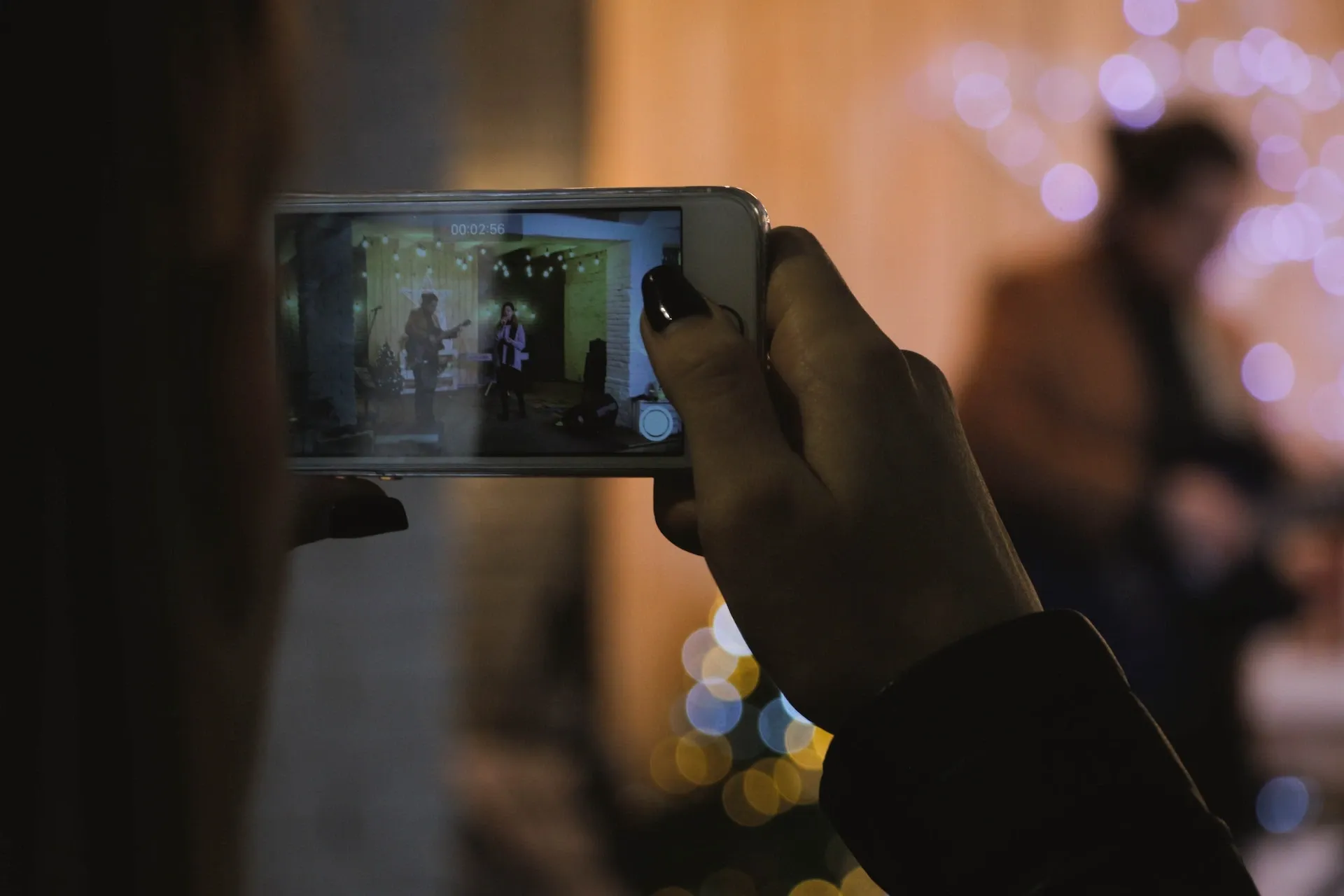
For cleaning iPhone camera lenses specifically, try a Kimwipe or compressed air. If that doesn’t do the trick, the problem might be that the dust or dirt is trapped below the camera lens. In that case, it’s best to book an appointment at your local Apple Store and let them handle it. If you try and dismantle the iPhone to try and do it yourself, you’ll void any warranty you may have. Leave it to the pros!
Now that you've learned why you should clean your camera lens, what you shouldn’t do, and some of the best pieces of kit for the job, it’s time to get out there and create some crystal clear content. If you need some music for said content, why not check out the 40,000 tracks in our catalog?
Our catalog is high-quality, affordable, and safe. An Epidemic Sound subscription goes beyond royalty-free music, removing the headache of licensing and freeing you up to do what you do best. You can enjoy the safety of our license hand-in-hand with our massive catalog of 40,000 tracks, covering just about every genre you can think of. You’ll also gain unlimited access to our advanced search functions — finding the right sound’s never been easier.
It’s better than royalty-free. It’s worry-free. Get started with Epidemic Sound below.

Filmmakers, look this way! Level up your skills and learn more about background music for videos, including:
Make your video editing count and browse our massive catalog of music for filmmakers.

